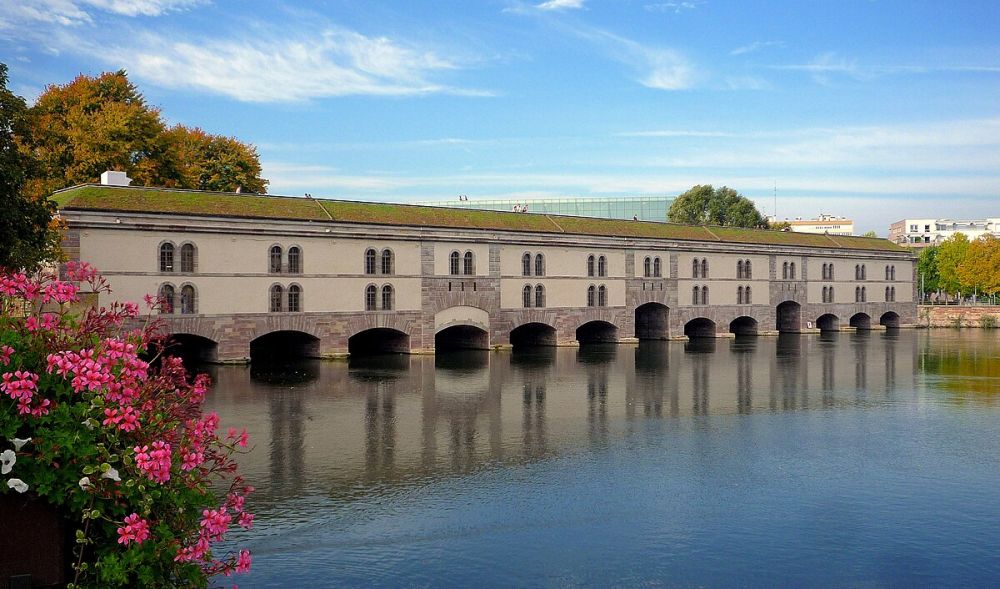

The Barrage Vauban is a historic dam in Strasbourg, remarkable for its role in the city's defenses. Constructed between 1686 and 1700, it was designed by the French military engineer Sebastien Le Prestre de Vauban under the reign of King Louis XIV. The edifice served as a vital part of the city's fortification system, capable of flooding the southern part of the city in the event of an enemy assault, thereby preventing invasion.
An example of 17th-century military architecture, the structure is impressive with its weirs and 13 arches. It also includes an upper-level terrace that offers panoramic views of the Petite France district, the Covered Bridges, and Strasbourg's historical city center, which has been listed as a UNESCO World Heritage site since 1988.
The Barrage Vauban's history of tourism dates back to when Strasbourg began to be recognized for its picturesque beauty and historical wealth. Once military needs subsided, the site gradually became a place of interest for visitors. Detailed records of tourism at Barrage Vauban specifically may not be extensive; however, Strasbourg's overall increase in tourism during the 19th and 20th centuries certainly involved visits to the Vauban Dam as a historical monument.
Today, the Barrage Vauban is a prime destination for tourists in Strasbourg. It has an interior gallery that has been transformed into an exhibition space, showcasing sculptures and providing historical context. The terrace is a favorite spot for taking pictures, particularly because of its panoramic views.
Cultural heritage and sustainable tourism are current trends attracting visitors to sites like the Barrage Vauban. Travelers are increasingly interested in authentic experiences and the preservation of historic sites. Additionally, the rise of smart tourism, involving the use of smart technologies to enhance the visitor experience, has made information and history about the dam more accessible through apps and digital guides.
Tourists can visit the Barrage Vauban throughout the year. It offers not only a glimpse into the strategic significance during Vauban's time but also serves as a symbolic reminder of Strasbourg's rich historical tapestry. Visiting hours can vary, and it is advised to check the current timings before planning a visit.